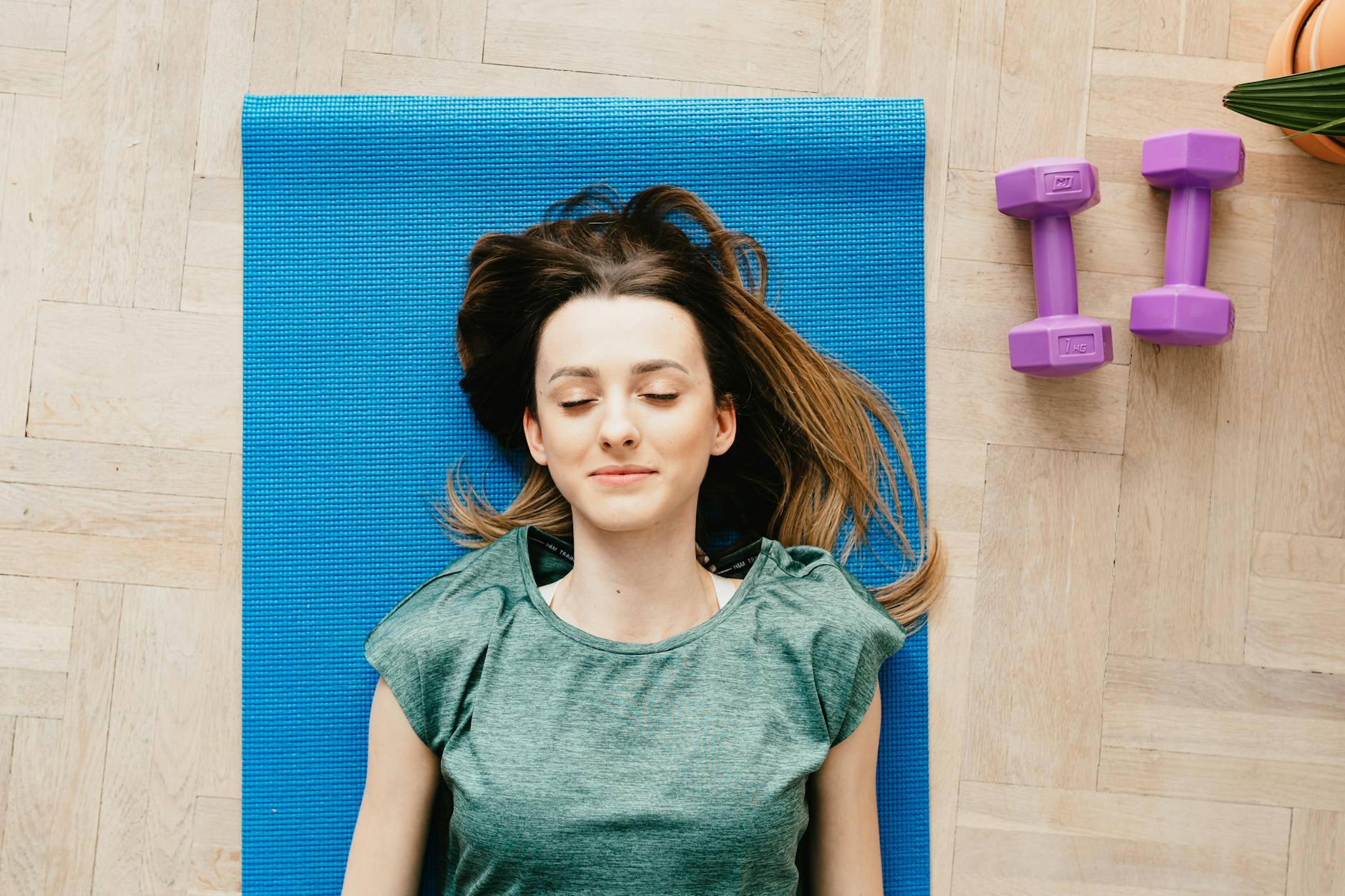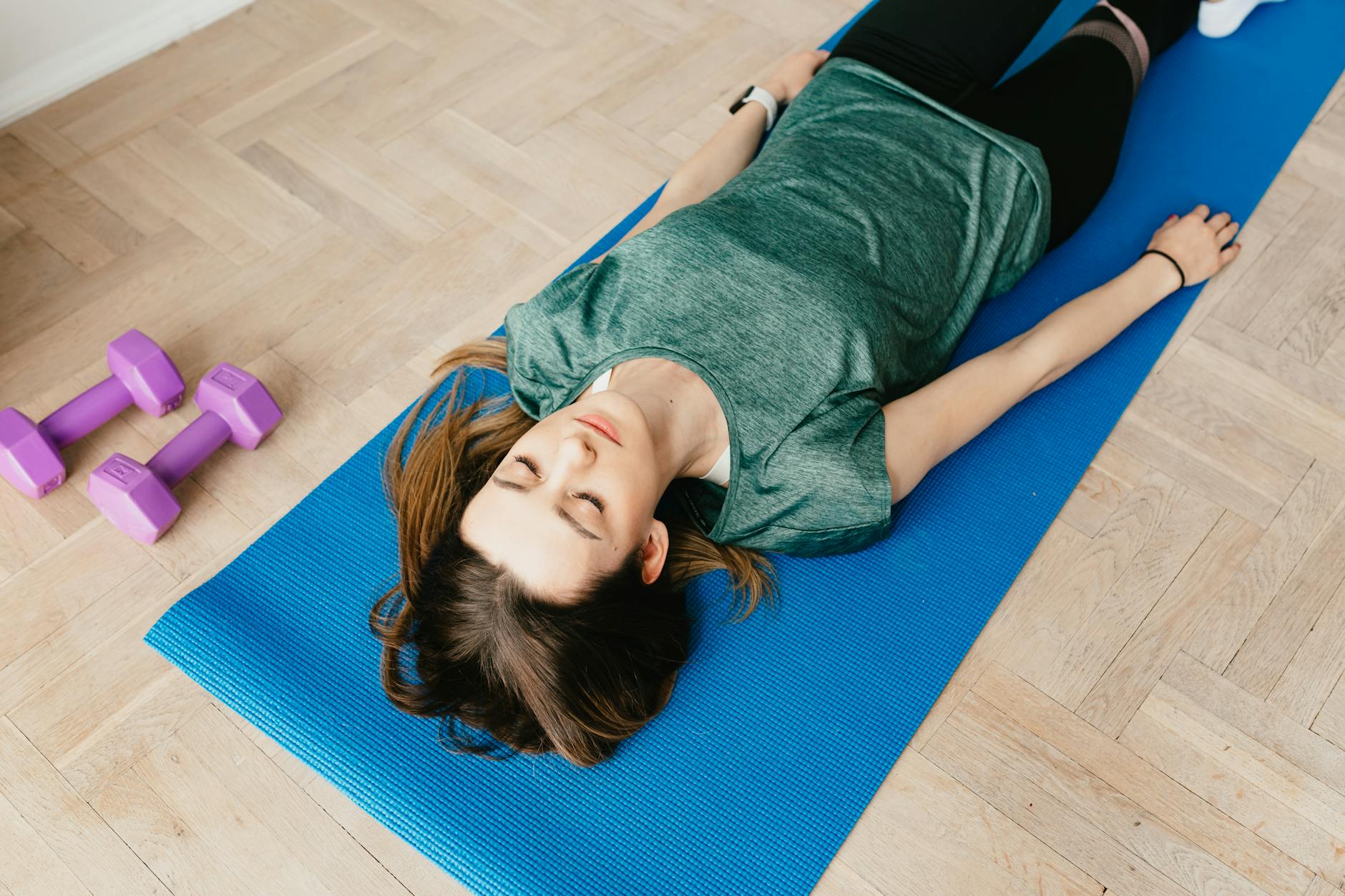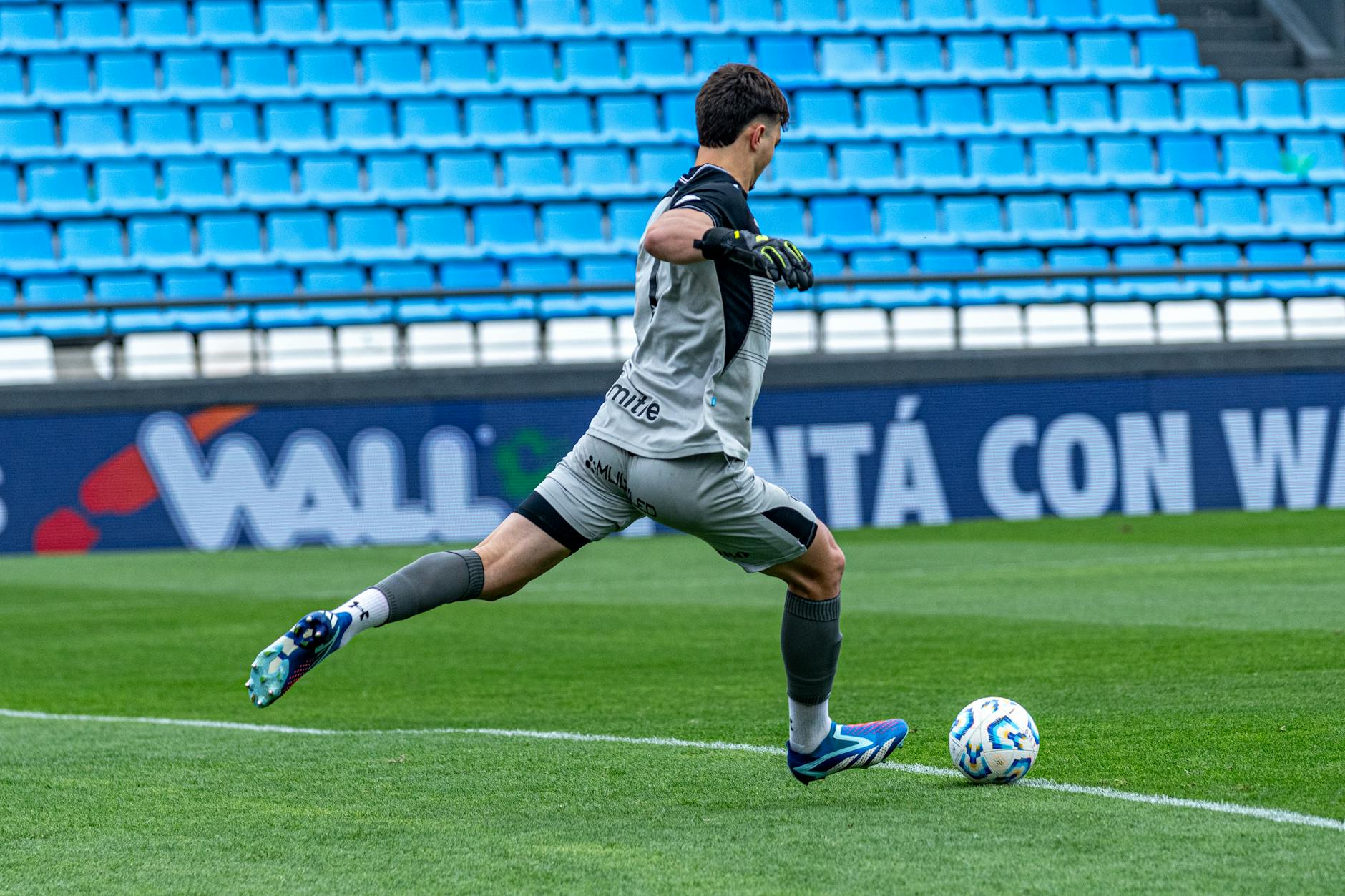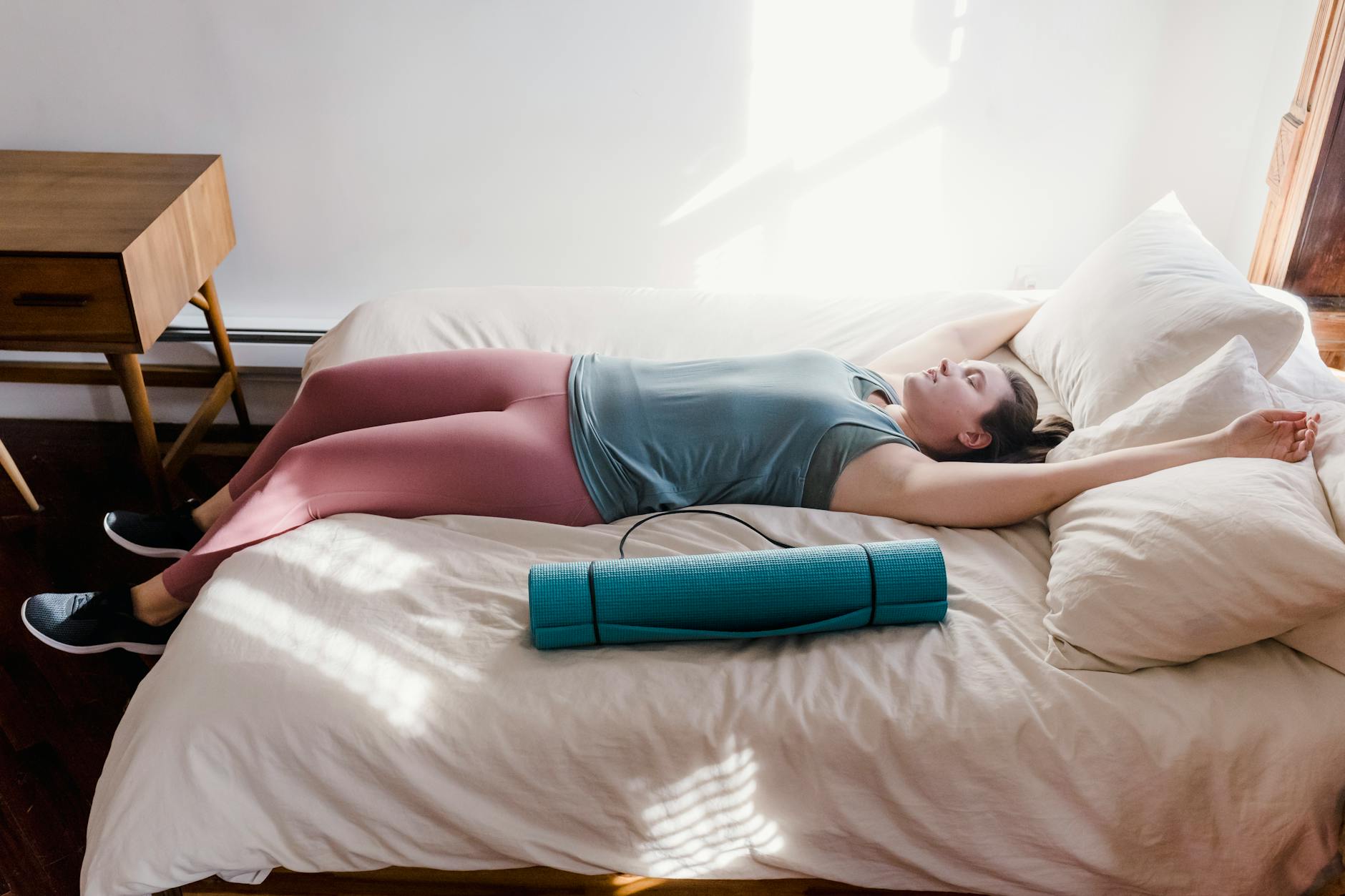
Have you ever wondered why, despite your rigorous workouts and strict diet, your fitness progress seems to have hit a plateau? The answer might be hiding in plain sight – your sleep habits. 😴💪
In our quest for peak physical performance, we often overlook one of the most crucial aspects of our fitness journey: quality sleep. While we’re busy counting reps and calories, we forget that the hours we spend in dreamland are just as important as those spent in the gym. But here’s the kicker – sleep deprivation could be silently sabotaging your fitness goals, undoing all your hard work without you even realizing it.
From understanding the intricate connection between sleep and fitness to discovering optimal sleep patterns for athletes, we’ll explore how your nighttime routine can make or break your daytime performance. We’ll delve into the science behind sleep’s impact on athletic prowess, uncover strategies to enhance your sleep quality, and learn how to balance rest with rigorous training schedules. So, are you ready to unlock the secret to supercharging your fitness progress? Let’s dive in and explore the fascinating world of sleep and its profound impact on your fitness journey. 🏋️♀️💤
Understanding the Sleep-Fitness Connection :

The role of sleep in muscle recovery
Sleep plays a crucial role in muscle recovery and growth. During deep sleep stages, the body releases growth hormones that stimulate muscle repair and protein synthesis. This process is essential for rebuilding and strengthening muscles after intense workouts.
- Key benefits of sleep for muscle recovery:
- Increased blood flow to muscles
- Reduced inflammation
- Enhanced tissue regeneration
- Improved muscle fiber restoration
How sleep affects energy levels for workouts
The quality and quantity of sleep directly impact your energy levels, which in turn affect your workout performance. Adequate sleep ensures:
- Improved endurance
- Better focus and concentration
- Increased motivation
- Enhanced reaction time
| Sleep Duration | Energy Level | Workout Performance |
|---|---|---|
| < 6 hours | Low | Poor |
| 7-8 hours | Optimal | Excellent |
| > 9 hours | Variable | Good to Excellent |
Sleep’s impact on metabolism and weight management
Sleep plays a vital role in regulating hormones that control appetite and metabolism. Lack of sleep can lead to:
- Increased production of ghrelin (hunger hormone)
- Decreased production of leptin (satiety hormone)
- Insulin resistance
- Slower metabolism
These factors can make it challenging to maintain a healthy weight and achieve fitness goals. Adequate sleep helps balance these hormones, supporting weight management efforts and optimizing metabolic function.
Now that we understand the critical connection between sleep and fitness, let’s explore how sleep deprivation can negatively impact your fitness journey.
Sleep Deprivation and Its Effects on Fitness :

Now that we understand the sleep-fitness connection, let’s explore how sleep deprivation can significantly impact your fitness progress and performance. The impact of sleep on your overall well-being cannot be overstated, especially when it comes to physical fitness.
A. Decreased athletic performance
Sleep deprivation can lead to a notable decline in athletic performance. Studies have shown that athletes who don’t get enough sleep experience:
- Reduced endurance
- Slower reaction times
- Decreased accuracy in sports-specific skills
| Sleep Duration | Performance Impact |
|---|---|
| 7-9 hours | Optimal performance |
| 5-6 hours | 10-30% decrease |
| <5 hours | >30% decrease |
B. Increased risk of injury
Lack of sleep significantly increases the risk of sports-related injuries. This is due to:
- Impaired coordination
- Slower reaction times
- Reduced muscle recovery
C. Impaired decision-making during workouts
Sleep deprivation affects cognitive function, leading to poor decision-making during workouts. This can result in:
- Overtraining
- Improper form
- Ineffective workout planning
D. Hormonal imbalances affecting muscle growth
Insufficient sleep disrupts the delicate balance of hormones crucial for muscle growth and recovery:
- Decreased growth hormone production
- Elevated cortisol levels
- Reduced testosterone in men
These hormonal imbalances can significantly hinder your fitness progress, making it harder to build muscle and lose fat.
Next, we’ll explore the optimal sleep patterns for fitness enthusiasts to help you maximize your workout results and overall well-being.
Optimal Sleep Patterns for Fitness Enthusiasts :

Now that we’ve explored the effects of sleep deprivation on fitness, let’s delve into the optimal sleep patterns for those dedicated to their physical well-being.
Recommended sleep duration for active individuals
While the general recommendation for adults is 7-9 hours of sleep per night, fitness enthusiasts may require slightly more due to their increased physical demands. Here’s a breakdown of recommended sleep durations based on activity levels:
| Activity Level | Recommended Sleep Duration |
|---|---|
| Moderate | 7-9 hours |
| High | 8-10 hours |
| Elite Athletes | 9-10+ hours |
The importance of sleep quality vs. quantity
While getting enough sleep is crucial, the quality of your sleep is equally important. High-quality sleep ensures that you cycle through all sleep stages, including deep sleep and REM sleep, which are vital for physical recovery and cognitive function.
To improve sleep quality:
- Create a dark, quiet, and cool sleeping environment
- Avoid electronic devices before bedtime
- Limit caffeine and alcohol consumption, especially in the evening
- Practice relaxation techniques before sleep
Establishing a consistent sleep schedule
Consistency is key when it comes to optimizing your sleep for fitness performance. A regular sleep schedule helps regulate your body’s internal clock, making it easier to fall asleep and wake up naturally.
Tips for maintaining a consistent sleep schedule:
- Set a fixed bedtime and wake-up time, even on weekends
- Create a relaxing pre-bed routine
- Expose yourself to natural light during the day
- Avoid naps longer than 30 minutes, especially late in the day
By implementing these optimal sleep patterns, fitness enthusiasts can significantly enhance their recovery, performance, and overall progress in their fitness journey. Next, we’ll explore specific strategies to improve your sleep quality for even better fitness results.
Strategies to Improve Sleep for Better Fitness Results :

Now that we understand the importance of sleep for fitness, let’s explore practical strategies to enhance your sleep quality and duration. By implementing these techniques, you can optimize your rest and recovery, leading to improved fitness results.
Creating a sleep-friendly environment
Your bedroom should be a sanctuary for rest. Consider the following elements:
- Temperature: Keep the room cool, ideally between 60-67°F (15-19°C)
- Lighting: Use blackout curtains or an eye mask to block out light
- Noise: Utilize white noise machines or earplugs to minimize disturbances
- Bedding: Invest in a comfortable mattress and pillows
Pre-sleep routines for athletes
Establishing a consistent bedtime routine can signal your body that it’s time to wind down:
- Set a regular sleep schedule
- Avoid screens 1-2 hours before bed
- Practice relaxation techniques like deep breathing or meditation
- Take a warm bath or shower to lower your core body temperature
Nutrition tips for better sleep
What you eat and drink can significantly impact your sleep quality:
| Do | Don’t |
|---|---|
| Consume tryptophan-rich foods (e.g., turkey, nuts) | Avoid caffeine 6 hours before bed |
| Stay hydrated throughout the day | Limit alcohol consumption |
| Have a light snack if hungry | Avoid heavy meals close to bedtime |
| Consider magnesium-rich foods (e.g., spinach, almonds) | Steer clear of spicy or acidic foods |
Managing stress for improved sleep quality
High stress levels can interfere with your ability to fall and stay asleep. Try these stress-management techniques:
- Practice mindfulness or meditation
- Keep a worry journal to offload thoughts before bed
- Engage in light stretching or yoga
- Use aromatherapy with calming scents like lavender
By implementing these strategies, you can create an optimal sleep environment and routine that supports your fitness goals. Next, we’ll delve into the fascinating science behind sleep and athletic performance.
The Science Behind Sleep and Athletic Performance :

Now that we’ve explored optimal sleep patterns and strategies for improvement, let’s dive into the scientific aspects of how sleep influences athletic performance.
Sleep Stages and Their Impact on Physical Recovery
Sleep is not a uniform state but consists of several distinct stages, each playing a crucial role in physical recovery:
- Non-REM Stage 1: Light sleep, transition to deeper stages
- Non-REM Stage 2: Body temperature drops, heart rate slows
- Non-REM Stage 3 (Deep Sleep): Most restorative, essential for physical recovery
- REM Sleep: Important for cognitive functions and motor skill development
| Sleep Stage | Duration | Benefits for Athletes |
|---|---|---|
| Non-REM 1 | 5-10 min | Relaxation of muscles |
| Non-REM 2 | 20-25 min | Temperature regulation |
| Non-REM 3 | 45-90 min | Tissue repair, muscle growth |
| REM | 10-60 min | Motor skill consolidation |
The Role of Growth Hormone Release During Sleep
During deep sleep, the body releases significant amounts of growth hormone, which is crucial for:
- Muscle repair and growth
- Fat metabolism
- Bone density improvement
- Overall recovery from intense physical activity
Athletes who consistently get quality sleep benefit from higher levels of growth hormone, enhancing their fitness progress and performance.
How Sleep Affects Reaction Time and Coordination
Adequate sleep is essential for maintaining quick reaction times and optimal coordination, which are vital for athletic performance. Research shows that:
- Sleep deprivation can decrease reaction time by up to 300%
- Lack of sleep impairs hand-eye coordination
- Well-rested athletes make fewer mistakes and have better decision-making abilities
These factors significantly impact performance across various sports and fitness activities, highlighting the critical role of sleep in achieving peak athletic performance.
Next, we’ll explore how to effectively balance sleep with training schedules to maximize your fitness potential.
Balancing Sleep with Training Schedules :

Now that we’ve explored the science behind sleep and athletic performance, let’s dive into practical strategies for balancing sleep with your training schedules. This balance is crucial for maximizing the impact of sleep on your fitness progress and overall performance.
Adjusting sleep patterns for early morning workouts
Early morning workouts can be challenging, but with the right sleep adjustments, you can make them work for you:
- Gradually shift your bedtime earlier
- Create a consistent pre-sleep routine
- Avoid screens at least 1 hour before bed
- Use blackout curtains to maintain a dark sleeping environment
Managing sleep during intense training periods
During high-intensity training phases, your body needs extra recovery time. Here’s how to manage your sleep effectively:
- Increase total sleep time by 30-60 minutes
- Prioritize sleep quality by optimizing your sleep environment
- Stick to a consistent sleep schedule, even on rest days
- Monitor your sleep quality using wearable technology or sleep apps
Napping strategies for athletes
Strategic napping can complement your nighttime sleep and boost performance. Consider the following napping guidelines:
| Nap Type | Duration | Best Time | Benefits |
|---|---|---|---|
| Power Nap | 10-20 minutes | Early afternoon | Quick refresher, improved alertness |
| Recovery Nap | 30-60 minutes | Post-workout | Enhanced muscle recovery, reduced fatigue |
| Pre-performance Nap | 90 minutes | 3-4 hours before event | Improved reaction time, better endurance |
Remember, the key to balancing sleep with your training schedule is consistency and adaptability. Experiment with these strategies to find what works best for you and your fitness goals.

Sleep plays a crucial role in your fitness journey, impacting everything from muscle recovery to athletic performance. By understanding the intricate connection between sleep and fitness, you can optimize your training results and overall well-being. Prioritizing quality sleep, maintaining consistent sleep patterns, and implementing effective strategies to improve your rest are all essential components of a successful fitness regimen.
Remember, achieving your fitness goals isn’t just about what you do in the gym or on the track. It’s equally about how you recover and recharge. Make sleep a non-negotiable part of your fitness routine, and you’ll likely see improvements in your strength, endurance, and overall performance. By balancing your training schedule with adequate rest, you’re setting yourself up for long-term success in your fitness journey.













